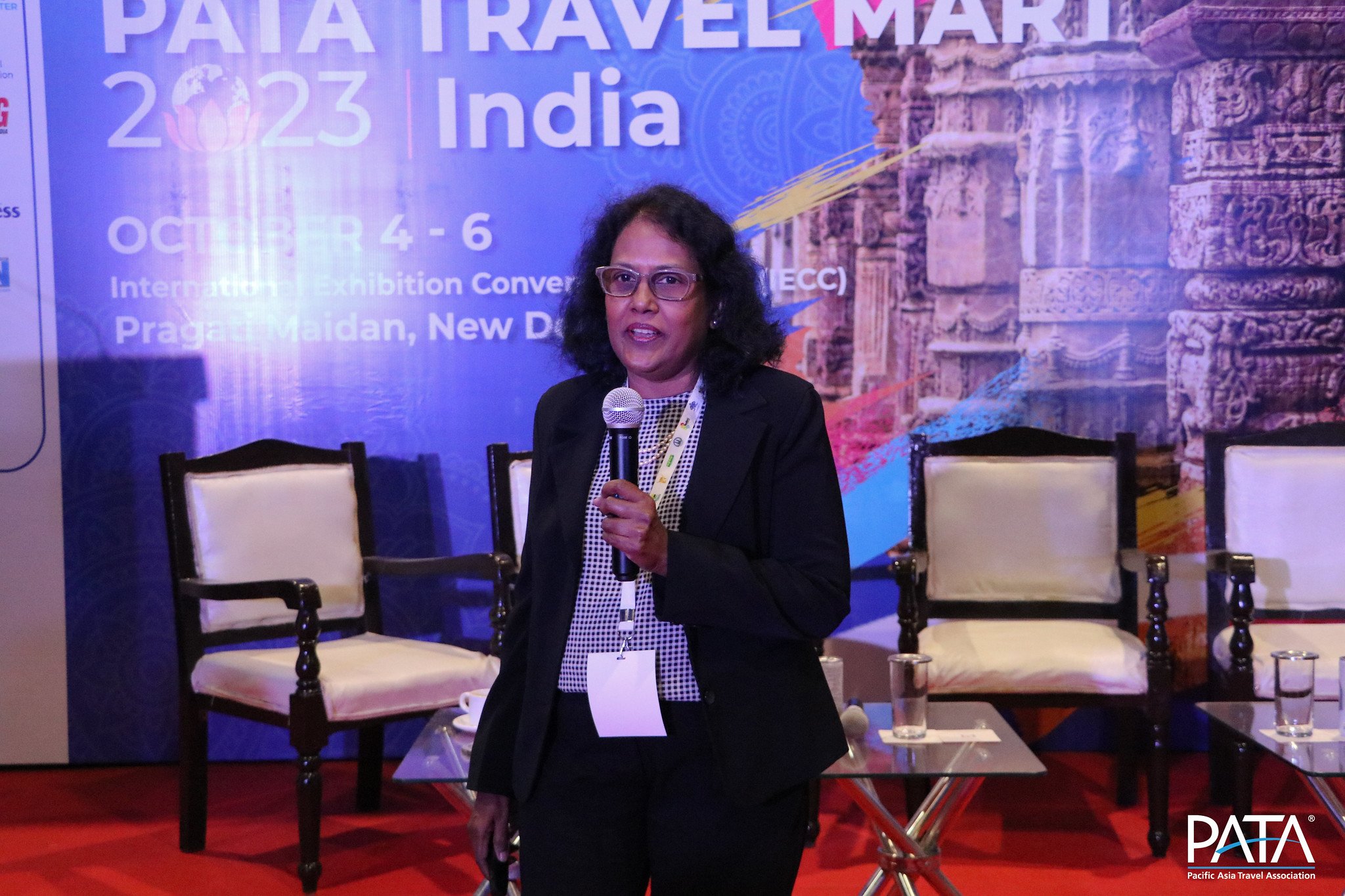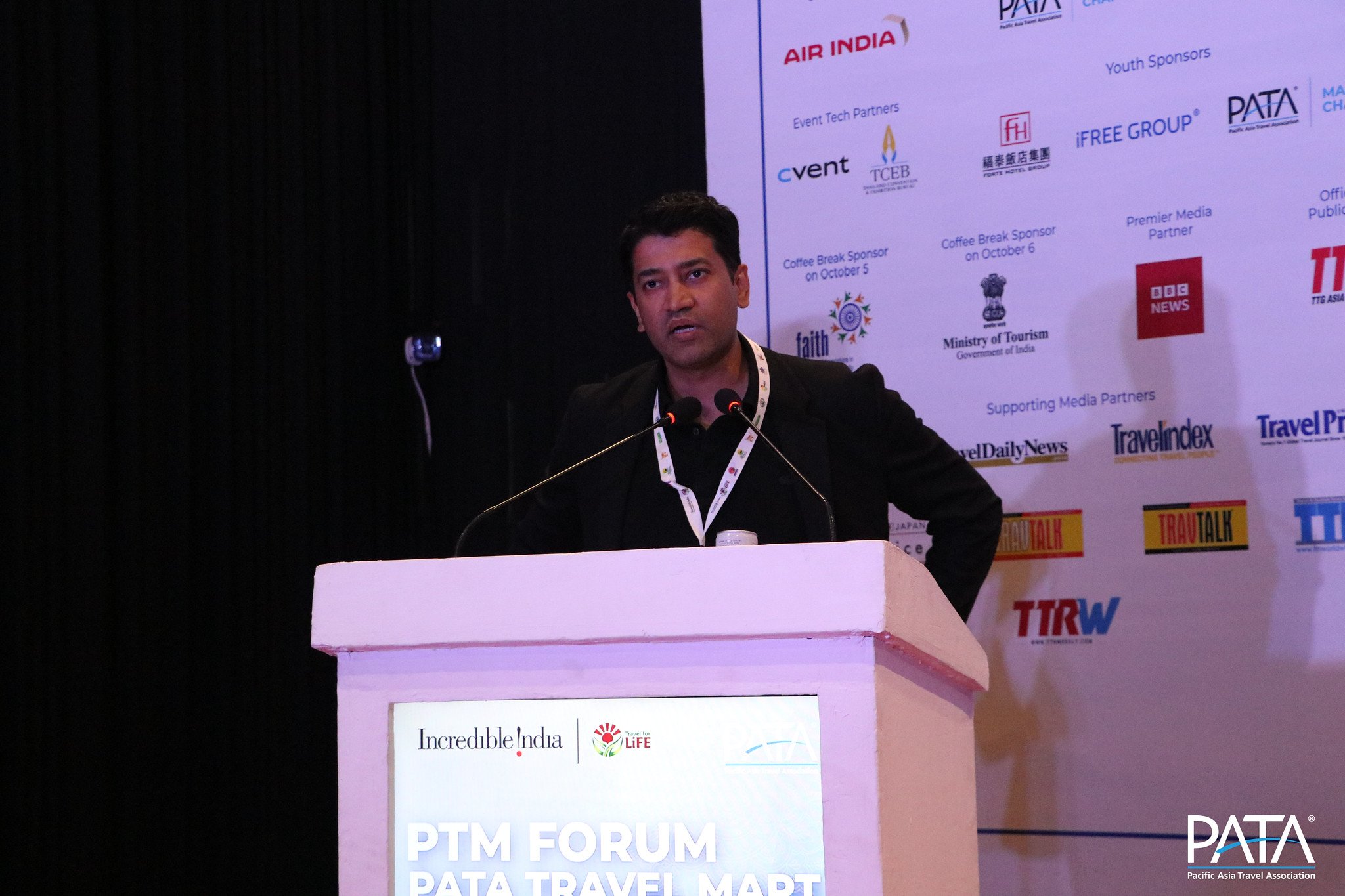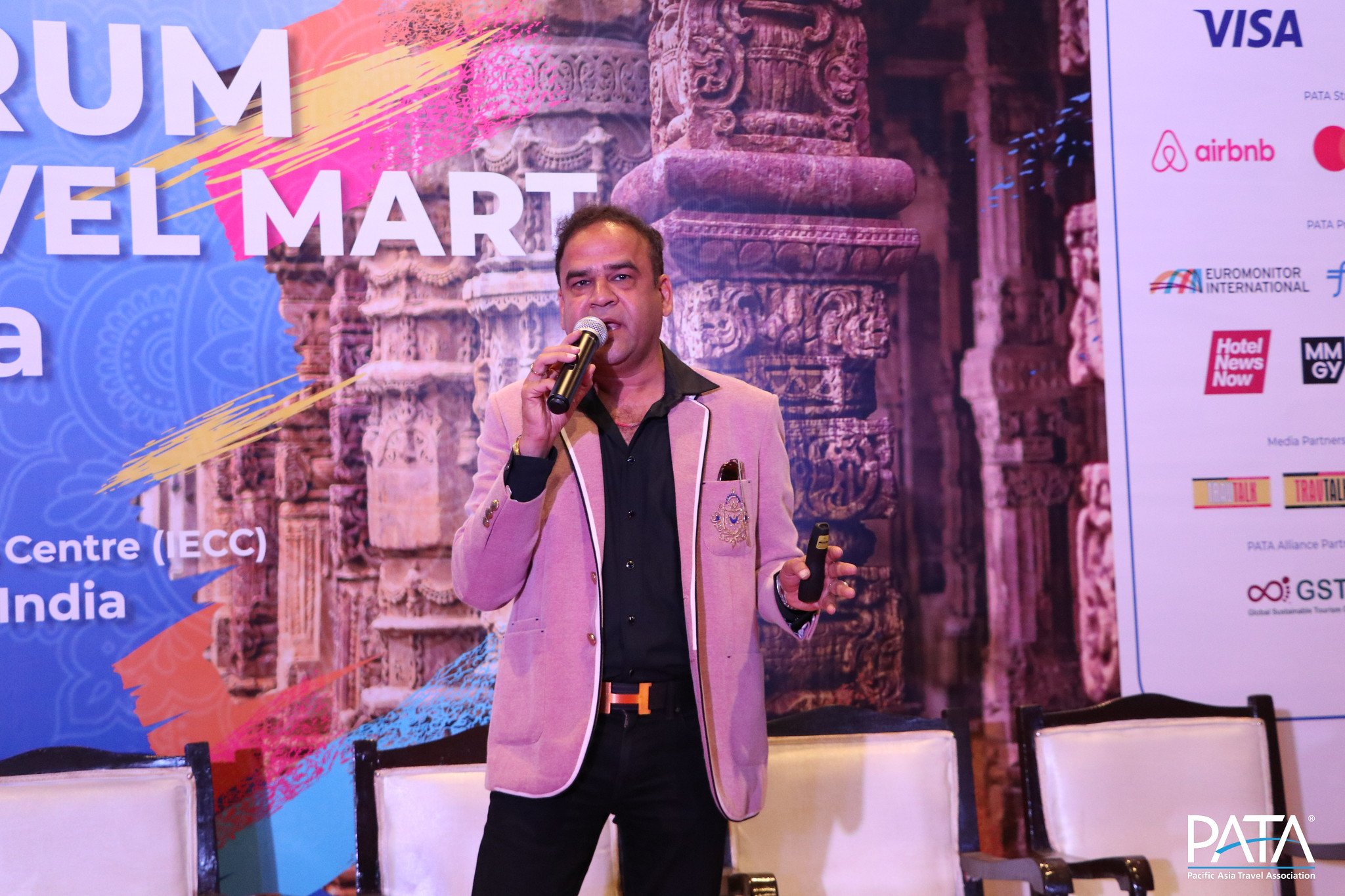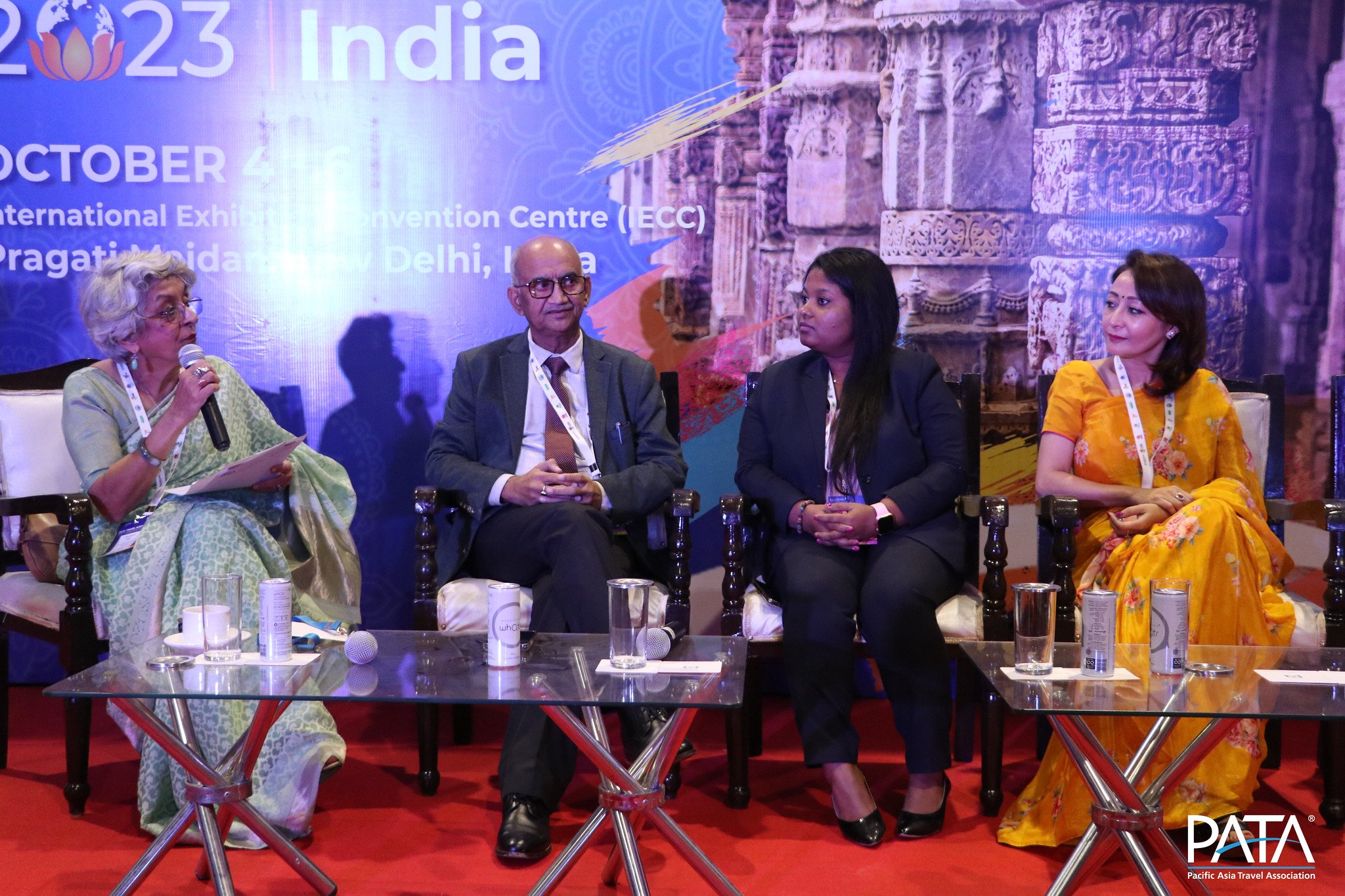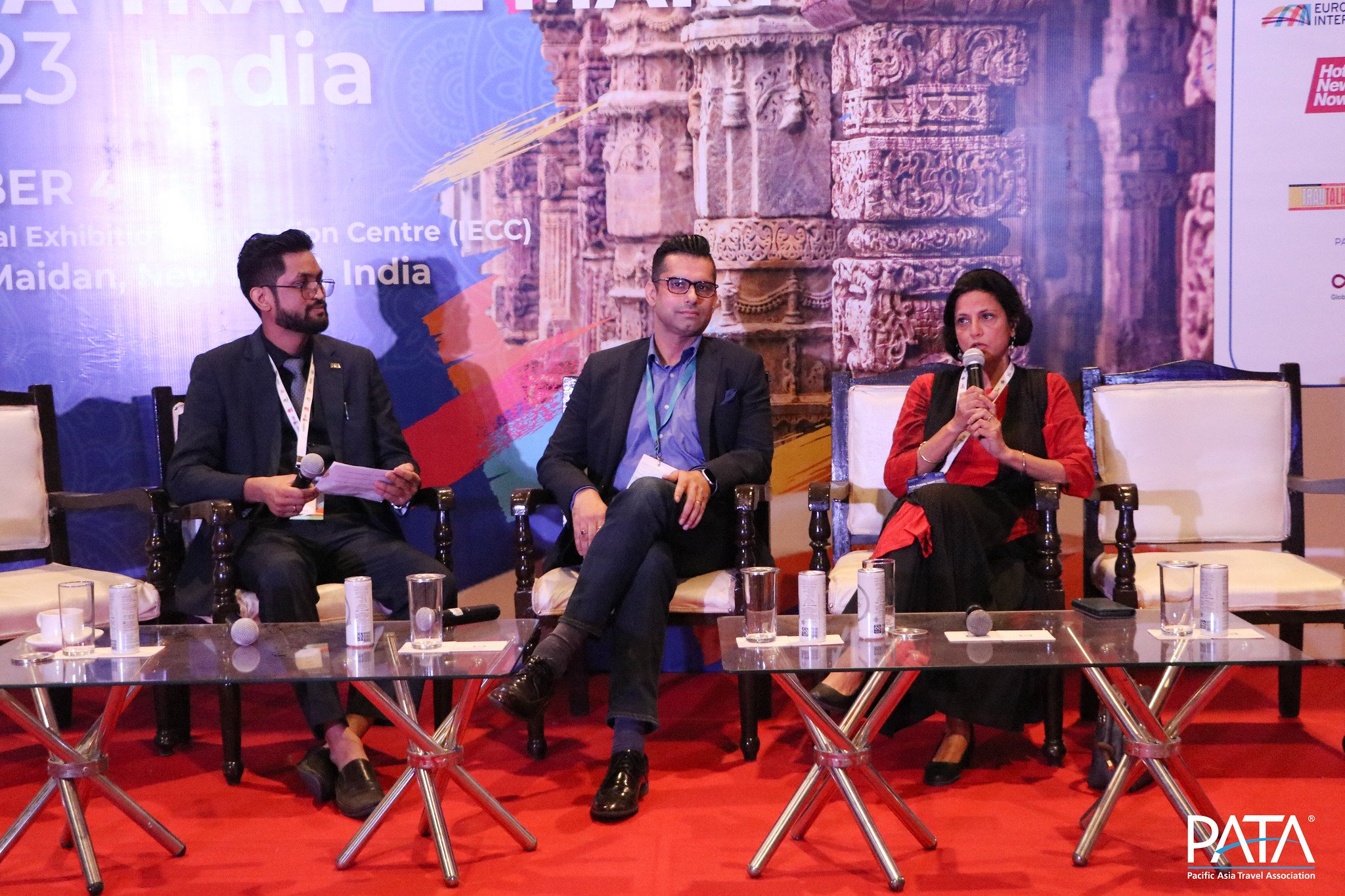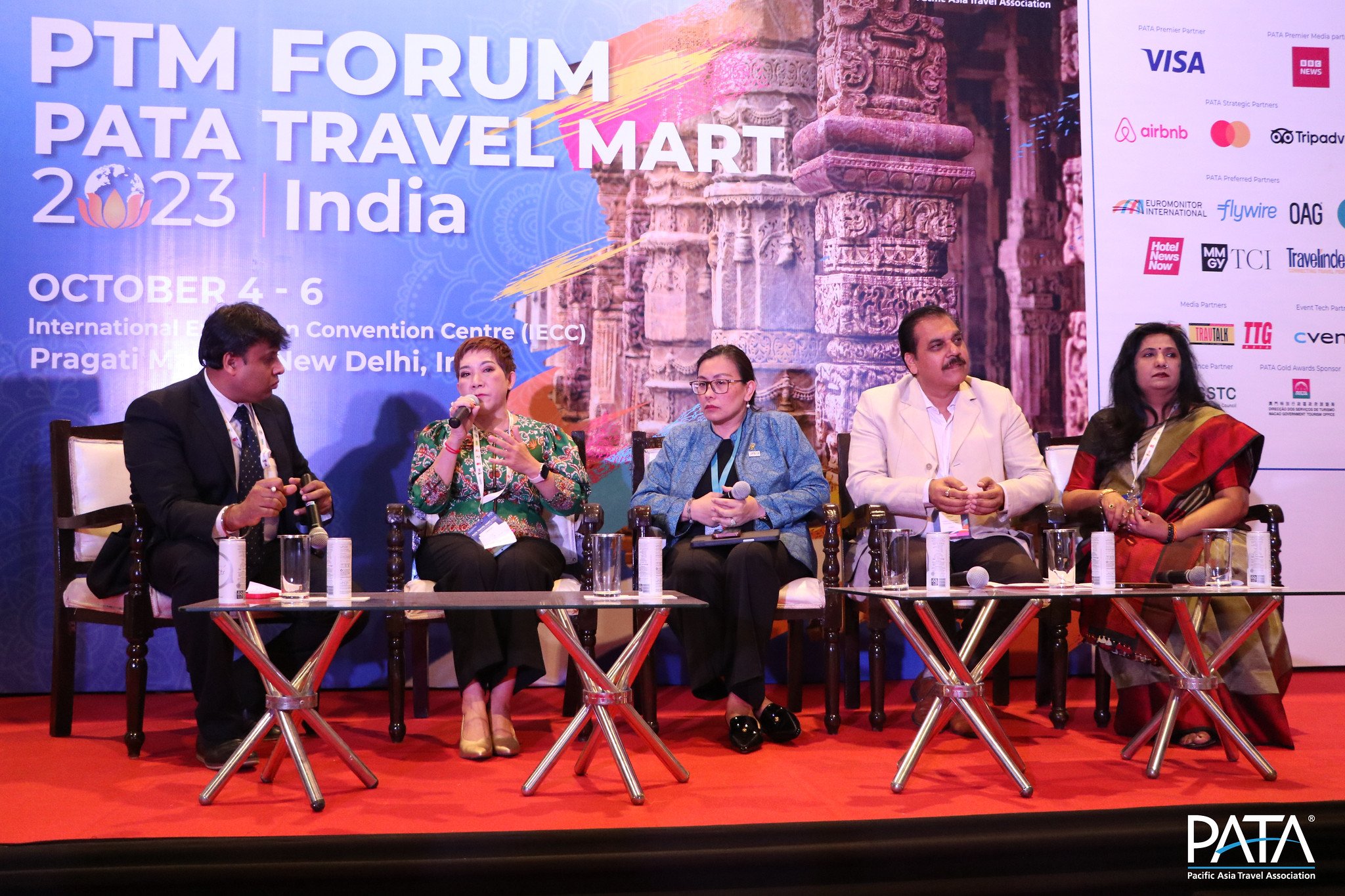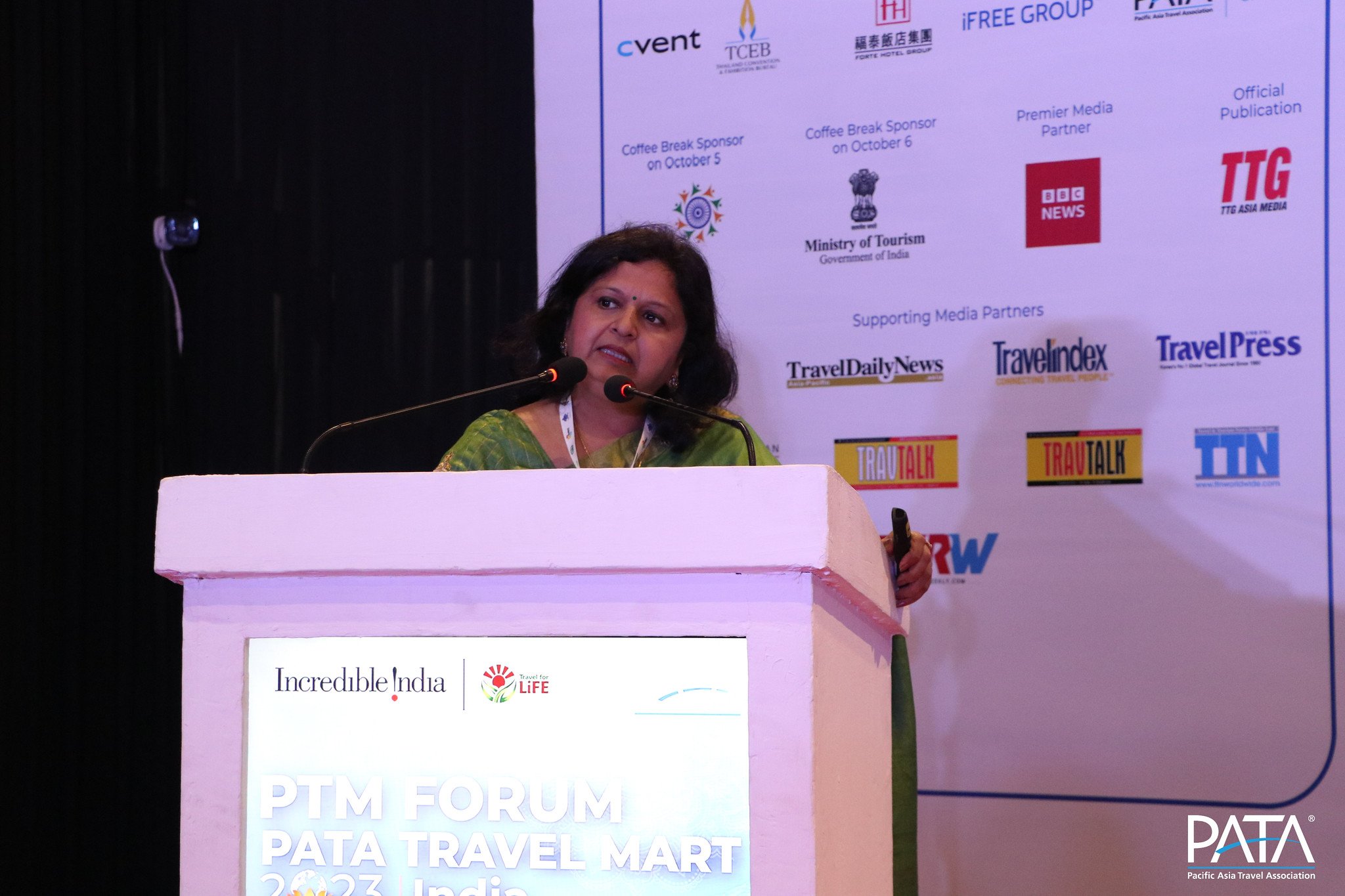PATA Travel Mart 2023 in India: Where Responsibility Meets Opportunities
PATA Travel Mart 2023 (PTM 2023), generously hosted by the Ministry of Tourism, Government of India, has attracted over 1000 delegates from 46 global destinations. The delegate numbers embraced 159 sellers from 92 organisations and 15 destinations, along with 196 buyers from 191 organisations and 38 source markets. The half-day PTM Forum that took place on Oct 4 invited 24 speakers from 22 organisations to share insights on three specific areas: The Indian Tourism Industry, Sustainability in Tourism, and Artificial Intelligence. Here are the key learnings from the forum:
The Indian Tourism Industry
India's tourism sector is poised for significant growth, with a target of reaching a tourism GDP of $27 trillion by 2047. India already boasts the world's largest domestic tourism market, and it aims to secure a 60% share of visitors from short-haul destinations. Moreover, the industry seeks to enhance the quality of branded accommodations and sees investment opportunities primarily in gateway cities. Tourism is expected to play a more significant role in India's GDP, and numerous untapped markets are ready for exploration, with a focus on experiential travel.
Aviation in India: Unlocking Vast Potential
In India, the aviation sector is ripe with opportunities. Currently, only 4% of the population travels by air, with 3% being repeat travellers. Post-pandemic, Air India Express is seeing a number of emerging trends, including a surge in last-minute flight bookings and the unbundling of flight products, catering to travellers' desire for customised experiences. On the operators’ end, the integration of AI and machine learning for price optimisation is also on the rise.
Evolving Travel Behaviours in India
Booking.com’s latest report shows that Indian travellers are displaying confidence and a willingness to spend on travel. Their travel behaviours are shifting towards wellness and religious journeys, with a growing preference for experience-based travel, according to Mastercard’s insight. Advanced bookings are on the rise, driven by budget considerations, and travellers are venturing out during long weekends. Alternative accommodations are gaining popularity, transforming the travel landscape and empowering smaller destinations and micro-entrepreneurship. As travellers are actively seeking eco-friendly options, this presents an opportunity for service providers to offer and highlight responsible choices; however, cost remains a consideration for Indian travellers.
One element that remains unchanged is the fact that food remains a crucial part of Indian travellers’ itineraries.
The Booming Indian Wedding Industry
India's wedding industry is a thriving behemoth, valued at $50 billion. Major spending categories include venues, catering, entertainment, gifts, and honeymoons. For destination weddings, popular choices include exotic locations like Thailand, Turkey, the UAE, Bali, and Mauritius. This robust growth reflects the cultural and economic importance of weddings in India, presenting abundant opportunities for related-service providers.
L/R: Wipawadee Niyomthai, Senior Manager, TCEB; Bharat Nagpal, Enterprise Sales Director, Adara- A RateGain Company; Sriram Gopalswamy, Vice President, Site Reliability Engineering & MD, Sabre Bengaluru
The Future of Travel: Artificial Intelligence
AI is reshaping travel customer engagement. AI is vastly utilised to learn trends, assess customer value, and segment clients, providing personalised information without invasive data collection and holding promise for reducing email and ad volume while improving data engagement. The speakers emphasised that AI can be made more powerful with the right mix of technologies, highlighting the holistic impact of various technologies throughout the travel lifecycle. With a massive amount of data readily available at hand, the tourism sector must break down data silos and act simultaneously to harness AI effectively.
Responsibility Meets Opportunity
Climate change and global challenges are reshaping our world. Tourism plays an irreplaceable role in fostering prosperity if the industry can come together to consider the impact of our actions, underscoring the importance of sustainability as a unifying force across governments, businesses, and communities. Nonetheless, sustainability in tourism is beyond the environment, it is also about empowering people for a better life.
Sustainability Journey for Event Organisers
Sustainability in the MICE sector is evolving holistically. Event organisers must rethink traditional practices, particularly concerning food waste, a significant issue at large events due to its cultural importance in the majority of destinations. This underscores the need for conscious decisions to minimise environmental impact. Event Organisers and public organisations should actively promote sustainability through various initiatives. For example, TCEB uplifts MICE operators, standardises policies, sources locally and organically, and focuses on offsetting travellers' carbon footprints; the India Convention Promotion Bureau (ICPB) supports sustainability through funds for eco-friendly practices.
Sustainability in the Tourism Supply Chain
Sustainability in the tourism supply chain is multi-faceted. Peter Richards from the SWITCH-ASIA programme sees an opportunity to add sustainability dimensions benefiting destinations and communities through diverse product offerings. He also highlighted the importance of a streamlined process including checklists created through global-local consultations, tailored training, and motivating suppliers to align with sustainability goals. Prof. Monika Prakash from Central Nodal Agency – Sustainable Tourism confirmed that certification instils consumer confidence. It ensures tourism businesses continually progress in their sustainability journey, connecting global sustainability goals to local contexts and cultural alignments.
Waste Management: A Tourism Challenge
Waste management is a critical concern in the tourism industry. Large volumes of food and plastic waste end up in landfills, with policies, awareness, and supply chain compliance needed for change. Identifying waste prevalence in the supply chain is crucial, as it varies between destinations. In India, waste is concentrated in production and transportation. Effective waste management is vital for reducing tourism's environmental impact and ensuring efficient resource use. Check out how these award-winning organisations are tackling food & plastic waste >
Promoting Gender Inclusivity and Cultural Heritage Preservation
Rural tourism is a powerful tool for gender equity and inclusivity in tourism. Initiatives in Nepal and Madhya Pradesh, India, engage women through community projects and skill development, utilising local practices and ingredients to provide a stepping stone for women to make a living from tourism on their own. The speakers also emphasised that gender equity should not overlook LGBTQ+ inclusivity.
Preserving cultural heritage requires planning, risk management, and strategies to manage tourist flows. Tourism-generated revenues fund heritage protection and promotion. Technology enhances visitor experiences without overshadowing local culture and economies. Empowering local communities to take ownership of their heritage sites is the most critical factor in ensuring the success of their sustainability.
India, as the world’s fastest-growing travel market, has actively demonstrated their dedication to creating a more responsible travel landscape with their Travel for LiFE programme that involves both travellers and suppliers.
Travel for LiFE: Fostering Sustainable Tourism
Travel for LiFE, part of the global Mission LiFE initiative led by India's Prime Minister Narendra Modi, is a programme launched by the Ministry of Tourism to promote responsible and sustainable tourism. It encourages tourists and tourism businesses to transition from a "use-and-dispose" economy to a circular one, emphasising mindful resource utilisation to protect the environment. The programme focuses on simple actions such as saving energy and water, and saying no to single-use plastics while respecting local culture and heritage. Travel for LiFE aligns with the Sustainable Development Goals (SDGs), particularly SDG 8, 11, 12, 13, and 14, promoting economic growth, sustainable consumption, climate action, and conservation of natural heritage. It offers a list of 40 illustrative actions for tourists and a certification for businesses, aiming to make sustainability a mainstream practice in the tourism sector, fostering resilience and inclusivity. Read more about the Travel for LiFE initiative >
Other happenings at the event include:
2-day Travel Mart
PATA Youth Symposium & Mentorship Session
PATA Gold Awards Ceremony, hosted Macao Government Tourism Office
Delhi City Tour
Welcome Reception hosted by Ministry of Tourism, India
PATA Government Meeting, Board Meeting, PATA Chapter Congress, and PATA Board Dinner & Award Ceremony

